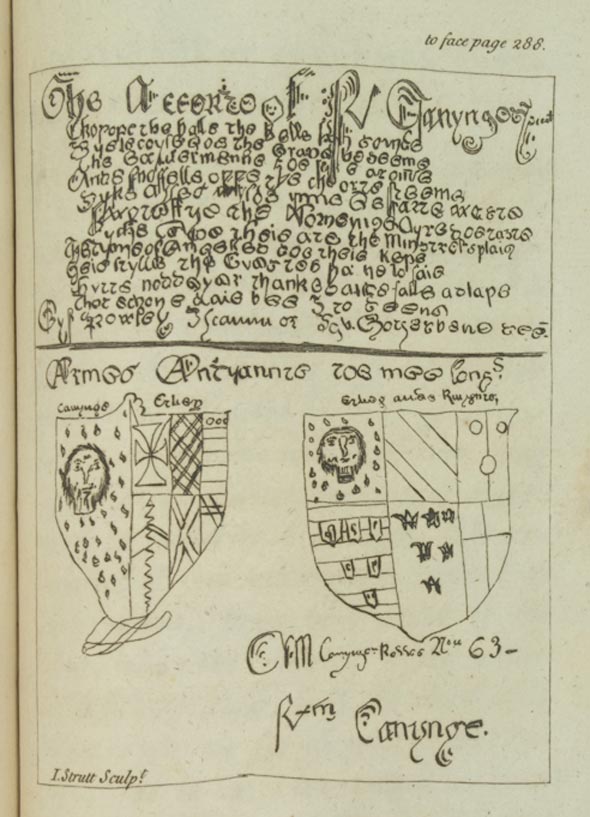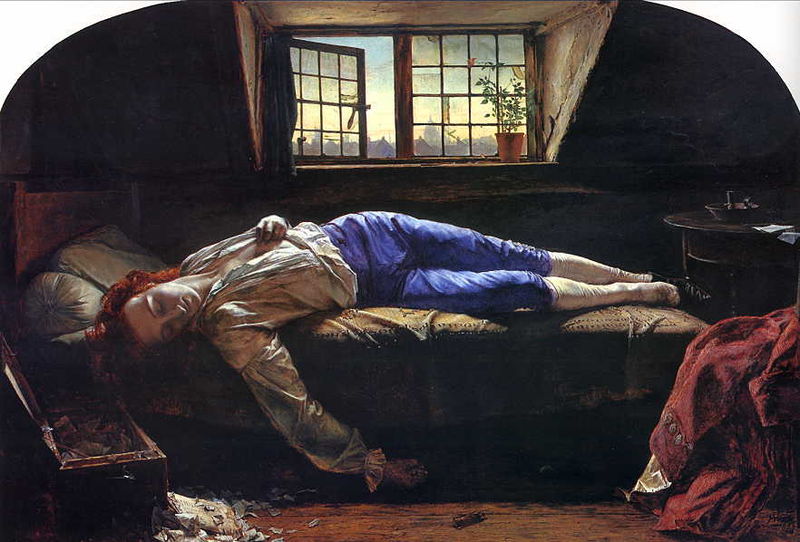Book of the Month: Thomas Chatterton

Thomas Chatterton. Poems, Supposed to Have Been Written at Bristol, by Thomas Rowley, and Others, in the Fifteenth Century. London: T. Payne and Son, 1778.
Via the “Book of the Month” feature of the Rare Books Library at the University of Rochester. Curator Pablo Alvarez’s description of this volume (and more pictures!) can be found here.
Thomas Chatterton: genius, forger, suicide, and Romantic hero. Chatterton created the 15th century priest and poet, Thomas Rowley, forged manuscripts of poetry, and published them as real historical finds (complete with marginal glosses and explanatory footnotes). The image above depicts an engraving of one of Chatterton’s forged manuscript pages. As Alvarez describes, his hoax was well researched:
Chatterton examined medieval manuscripts not only from St. Mary Redcliff Church but also from local libraries and bookstores in order to create a fifteenth-century hand. He consulted medieval glossaries and etymological dictionaries to fabricate what he erroneously thought was a version of fifteenth-century English—his medieval vocabulary included some 1,800 words. More dramatically, he did not hesitate to manufacture manuscripts that looked old by rubbing the parchment with dirt or dying it with tea. If he didn’t produce a manuscript, he simply claimed that the poems in question had been copied from an original version that existed elsewhere (Grafton, 1990: 50-3; Rosenblum, 2000: 57-105).
Chatterton died at the age of 17 by arsenic, an apparent suicide (although Nick Groom argues that his death may have been accidental, as arsenic was used to treat sexually transmitted diseases). His poetic genius and tragic death made him a Romantic hero; the “marvellous Boy,” as William Wordsworth calls him in “Resolution and Independence,” was commemorated in works by Percy Shelley, Samuel Coleridge, John Keats, and Dante Gabriel Rossetti.

Henry Wallis, The Death of Chatterton. 1856.
——–
Grafton, Anthony. Forgers and Critics: Creativity and Duplicity in Western Scholarship. London: Collins & Brown, 1990.
Rosenblum, Joseph. Practice to Deceive: The Amazing Stories of Literary Forgery’s Most Notorious Practitioners. New Castle, DE: Oak Knoll Press, 2000.
Continue reading